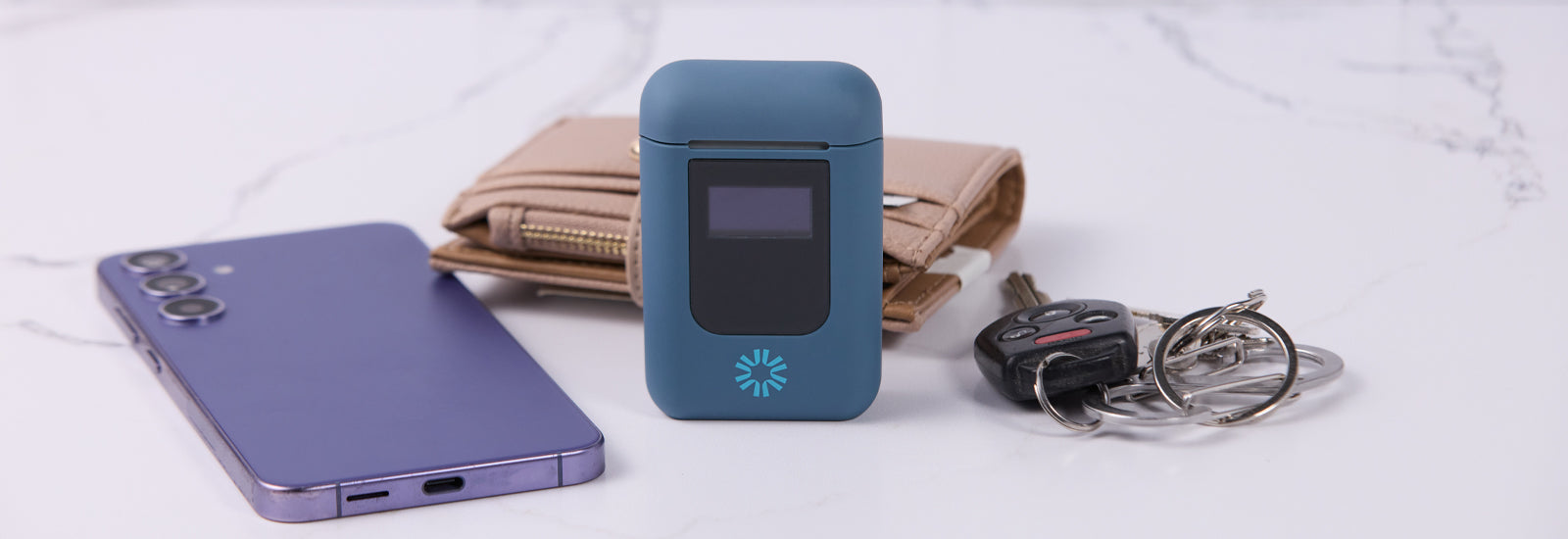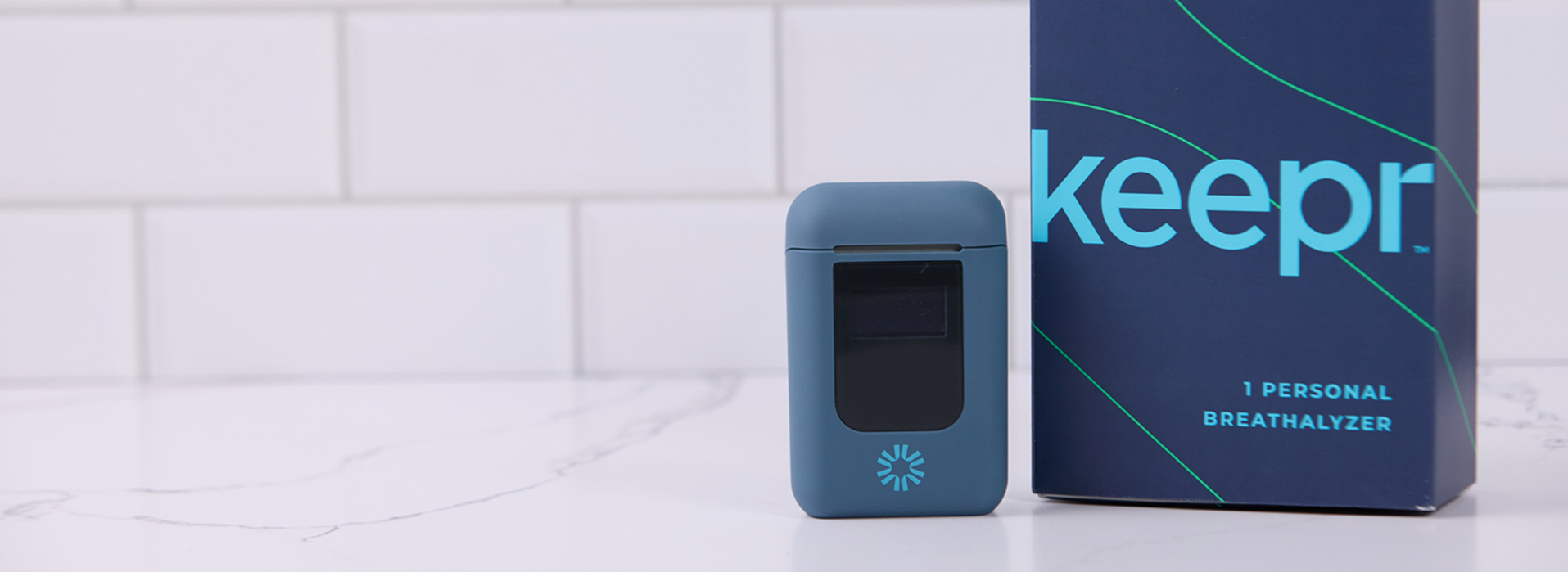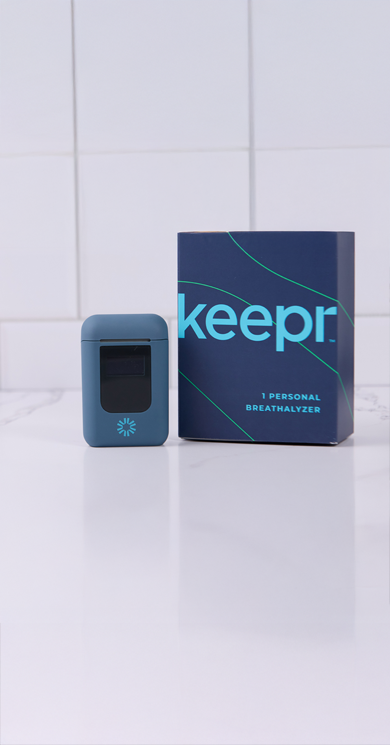Article: Breathalyzers for Court-Ordered Alcohol Monitoring: Features, Admissibility & What to Expect

Breathalyzers for Court-Ordered Alcohol Monitoring: Features, Admissibility & What to Expect
4 min read
Understanding Court-Ordered Alcohol Monitoring and Compliance
Key Takeaways
- Court-ordered alcohol monitoring is common in family law, probation, and criminal cases.
- Breathalyzers and other alcohol monitoring systems help people show their sobriety and stick to legal requirements.
- Choosing the right device and system can make compliance smoother for attorneys, clients, therapists, and sobriety coaches.
If a court orders you to demonstrate sobriety, you might feel uncertain about how court-ordered alcohol monitoring works. You may wonder what exactly is required, what happens if you miss a test, or how the monitoring process operates in different situations.
Judges and courts can use a range of alcohol testing options, such as breathalyzers, urine tests, hair tests, and continuous monitoring devices. Each test has its own purpose and fits various legal circumstances, so it’s important to understand which one applies to your needs.
Choosing a personal breathalyzer, like Keepr®, offers privacy, convenience, and real-time results that help you stay compliant and build trust. Keepr is playing a critical role in family law and custody cases by offering objective evidence and helping encourage accountability. If you would prefer to speak with our helpful specialists, you can call us at 833-743-5969 or send us a message.
Why Do Courts Use Breathalyzers Instead of Other Testing Methods?
Courts might use breathalyzers for alcohol monitoring because they give quick, reliable results about someone’s current breath alcohol concentration (BrAC). Breathalyzers help monitor day-to-day sobriety, while other methods (like urine or hair tests) check for past alcohol use over longer periods.
Breathalyzers, especially portable ones, make it easy to prove compliance on the spot, whether scheduled or random.
Types of Court-Ordered Alcohol Testing
Courts may require different testing options depending on the case:
- Breathalyzers (including in-home and portable options): Used for quick, on-the-go BrAC samples.
- Ignition Interlock Devices (IIDs): Installed in vehicles to prevent driving if alcohol is detected.
- Urine Testing: Tracks alcohol use over the past days.
- Hair Testing: Checks for alcohol use over the past months.
- Continuous Monitoring Devices: Worn on the body, these track alcohol levels around the clock.
- Proof of Treatment Program Participation: Sometimes courts require enrollment and progress reports from addiction recovery programs.
Who Uses Court-Ordered Alcohol Monitoring?
Family Law
Family courts often order alcohol monitoring when a parent’s alcohol use could affect a child’s safety. If the court wants to make sure a parent stays sober during parenting time, a breathalyzer creates accountability and helps build trust. Both parents, and their attorneys or counselors, can feel more secure knowing there’s a system in place.
Learn more about breathalyzers in family law and parenting time on Keepr’s Family Law Resources.
Criminal Law
Courts may use alcohol monitoring for several criminal law situations:
- Probation after DUI or DWI
- License reinstatement
- Supervised release and bail
- Domestic violence cases
Breathalyzers may be required in these cases to ensure the person meets all sobriety conditions. If alcohol use is a risk factor, monitoring can help minimize the chance of reoffending and show good faith to the court.
Types of Alcohol Monitoring Devices
- Ignition Interlock Devices: These breathalyzers connect to your car’s starter. If you pass the test, your car starts. Courts may require IIDs after DUI convictions and for license reinstatement.
- In-Home Breathalyzers: Test your BrAC at home, either on schedule or randomly. They’re easy to use and usually portable.
- Portable Breathalyzers like Keepr: Take them anywhere like work, school, or during parenting time. Keepr’s device links to an app, lets you set custom schedules, add approved contacts, and instantly share verified results.
How Compliance and Reporting Might Work
Courts generally outline how and when testing happens. They might decide who gets the results (probation officers, attorneys, co-parents, DMV, etc.) and set out the consequences for missed or failed tests. Reliable reporting matters. A court-approved alcohol monitoring system often uses:
- Real-time photo capture
- Multiple sensors to detect tampering
- Fuel-cell technology
- GPS or location tracking
Keepr offers all these capabilities, and they are available with a paid subscription.
What Could Happen If You Fail a Court-Ordered Breathalyzer Test?
Failing an alcohol test may mean warnings, more testing, probation revocation, license loss, fines, or even jail in probation and criminal cases. In family law, you might face restricted or supervised parenting time or lose custody. If you miss tests or tamper with your device, courts may treat these as violations.
How Keepr Could Help Attorneys, Therapists, and Clients Track Sobriety
Keepr’s portable breathalyzer for court-ordered alcohol monitoring tracks BrAC, supports addiction recovery, and provides verified results you can share with the court, your attorney, or your sobriety coach. The easy-to-use app keeps clients, therapists, and families connected and accountable.
For more recovery resources, check out official sites like SAMHSA, CDC, and American Addiction Centers.
If you have questions about court-ordered alcohol monitoring, connect with Keepr. Stay informed, stay compliant, and let Keepr help you and your clients navigate the process from start to finish.




